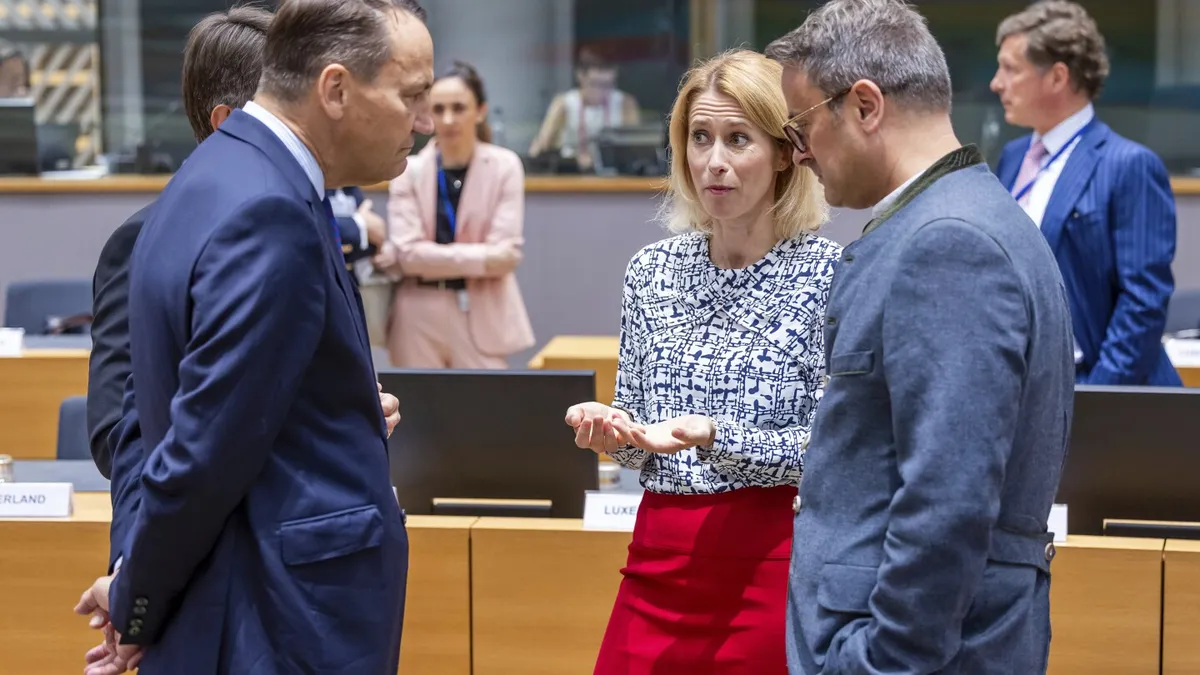
In a significant diplomatic move, Ukraine and its European allies are engaging U.S. President Donald Trump ahead of his anticipated summit with Russian President Vladimir Putin later this week. The discussions aim to safeguard Ukraine's security interests as concerns grow over the potential outcomes of the summit, particularly regarding territorial disputes.
Ukrainian President Volodymyr Zelenskyy has been notably excluded from the upcoming U.S.-Russia talks scheduled for Friday in Alaska. This exclusion, coupled with the likelihood that European leaders will not be invited, has led to apprehensions that Trump and Putin may reach agreements detrimental to Ukraine's sovereignty. Both leaders might consider land swaps involving Ukrainian territories, which could favor Russia without Ukrainian input.
In response to these concerns, German Chancellor Friedrich Merz has organized a series of meetings set for Wednesday. The discussions will include Trump, U.S. Vice President JD Vance, Zelenskyy, NATO’s chief, and various European leaders. The agenda will focus on strategies to increase pressure on Russia while preparing for potential peace negotiations surrounding issues of territorial claims and security.
The European Commission confirmed that President Ursula von der Leyen will participate in these discussions, alongside leaders from the U.K., Finland, France, Italy, and Poland, who will engage in “various discussion groups” to address these pressing matters.
Ukraine, supported by its European allies, firmly believes that any discussions regarding territorial changes cannot occur without Ukraine's involvement. They reject the idea of conceding territory to Russia without a ceasefire being established first. A coalition of nations willing to send troops to Ukraine to monitor any peace agreement is forming, with key players like French President Emmanuel Macron, U.K. Prime Minister Keir Starmer, and Merz coordinating efforts.
Poland’s Prime Minister Donald Tusk emphasized that altering state borders through force is unacceptable, asserting that any land swaps or peace terms must include Ukraine’s participation.
As of now, the reality on the battlefield cannot be overlooked. In 2022, Russia illegally annexed regions such as Donetsk, Luhansk, Kherson, and Zaporizhzhia, and continues to occupy the Crimean Peninsula. Despite not fully controlling these areas, Russian forces have made slow progress along a 1,000-kilometer front line, resulting in over 12,000 civilian casualties, according to U.N. estimates.
NATO Secretary General Mark Rutte acknowledged that the current control Russia has over parts of Ukraine must be addressed in any peace discussions following the Alaska summit. While he suggested that Ukraine's Western allies could tacitly recognize Russian control without accepting it legally, he emphasized that such a notion is fraught with challenges for Ukraine's leadership.
For President Zelenskyy, conceding territory without a ceasefire would be a difficult proposition, particularly in light of the significant sacrifices made by Ukrainian troops defending their homeland.
Zelenskyy advocates for a ceasefire as the primary step in negotiations. European leaders support this stance, asserting that decisions regarding any future land swaps should rest solely with Ukraine, rather than being a precondition for peace. Additionally, discussions around territorial claims might intersect with negotiations on security guarantees for Ukraine to prevent future conflicts.
European allies believe that a strong military presence is crucial for Ukraine's defense against further Russian aggression. They advocate for no limitations on the size of Ukraine’s military or the types of arms and equipment it can acquire. Furthermore, Ukraine should have the freedom to pursue EU membership without being pressured into neutrality.
The Trump administration has effectively removed Ukraine's NATO membership from immediate consideration, creating a challenging environment for European unity. Following a meeting of foreign ministers on Monday, EU foreign policy chief Kaja Kallas stated that the EU is committed to implementing more sanctions against Russia, providing increased military support for Ukraine, and addressing Ukraine's budgetary needs.
Kallas emphasized the importance of transatlantic unity in supporting Ukraine and applying pressure on Russia to end the ongoing conflict and prevent future aggression in Europe. As the situation unfolds, the focus remains on ensuring that Ukraine's interests are represented and protected in any potential agreements.
___
Grieshaber reported from Berlin. Associated Press writers Dasha Litvinova, Jamey Keaten in Geneva, and Sylvie Corbet in Paris contributed to this report.